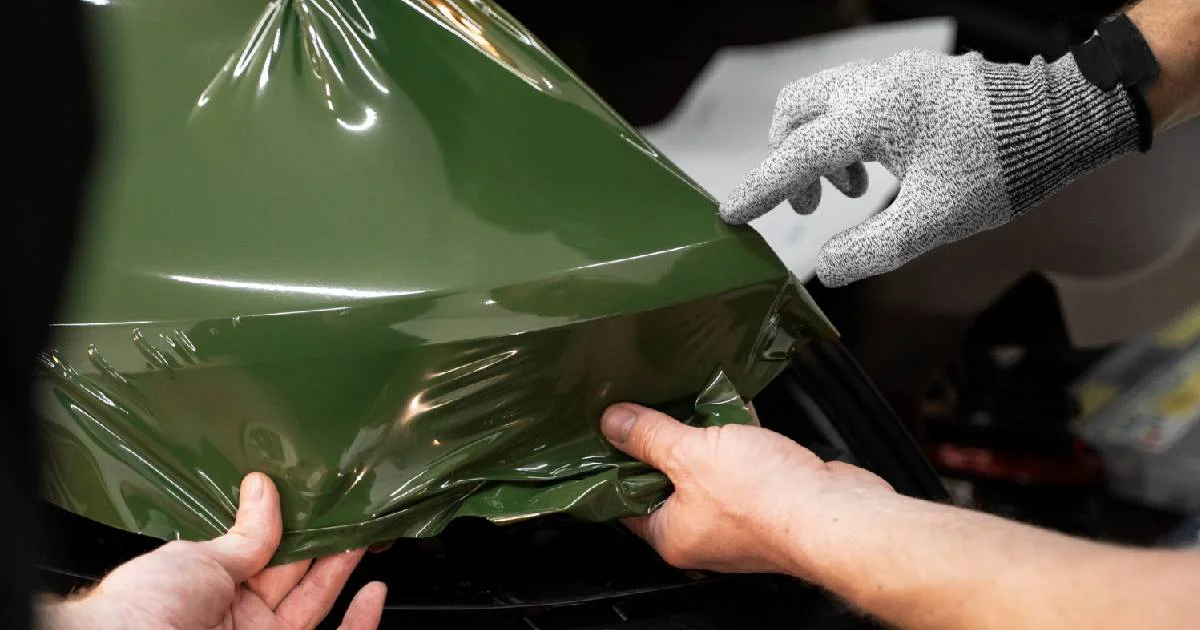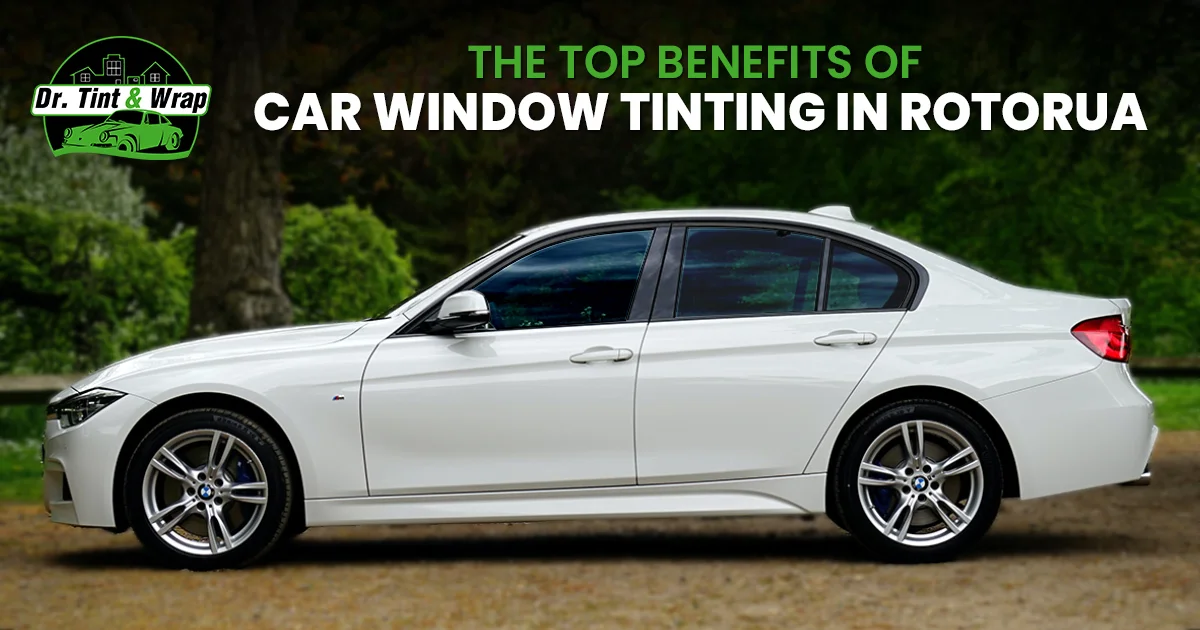
What is the cost of wrapping a car?
21 Mar 2024, By AdminWhat is the Cost of Wrapping a Car?
Car wrapping has become an increasingly popular way for vehicle owners to change the appearance of their cars without the permanence of a paint job. But what exactly goes into the cost of car wrapping? In this blog, we'll dive into the factors that influence the price of car wrapping, helping you understand what to expect if you decide to give your car a fresh new look.
Understanding Car Wrapping
Car wrapping involves applying a vinyl film over the surface of your vehicle. This process allows for a variety of finishes, including matte, gloss, satin, and even custom designs. Unlike traditional paint, a car wrap can be removed without damaging the original paint, making it a versatile and reversible modification.
Factors Affecting the Cost of Car Wrapping
The cost of car wrapping can vary significantly based on several factors. Here are the key elements that influence the overall price:
- Vehicle Size and Type
The size and type of your vehicle are primary determinants of the wrapping cost. Wrapping a small sedan is generally less expensive than wrapping a larger SUV or a luxury sports car. This is because larger vehicles require more vinyl material and more labor hours to cover all the surfaces properly. - Vinyl Quality and Finish
The quality of the vinyl and the type of finish you choose play a significant role in the cost. High-quality vinyl from reputable brands such as 3M or Avery Dennison can cost more but offers better durability and appearance. The finish also impacts the price; specialty finishes like matte, chrome, or carbon fiber tend to be more expensive than standard gloss or satin finishes. - Design Complexity
If you opt for a custom design or a wrap with intricate patterns and graphics, the cost will increase. Custom designs require additional time for design, printing, and installation. Simple, single-color wraps are typically more affordable. - Installation Labor
Labor costs vary based on the installer’s expertise and location. Professional installers with a proven track record may charge more for their services, but they also ensure a higher-quality finish. In metropolitan areas or places with a high cost of living, labor rates may be higher compared to rural areas. - Surface Preparation
Before applying the vinyl wrap, the car's surface must be thoroughly cleaned and prepped. If your vehicle has scratches, dents, or other imperfections, these need to be addressed, which can add to the overall cost. Some shops include minor prep work in their pricing, while others may charge extra. - Additional Features
Additional features such as wrapping door jambs, interior trims, or wheels can also increase the cost. These are often considered add-ons and are priced separately.
Average Cost Breakdown
To give you a general idea, here’s a rough estimate of car wrapping costs based on vehicle size and type:
- Compact Car (e.g., Honda Civic, Ford Focus): $1,500 - $3,000
- Mid-Size Sedan (e.g., Toyota Camry, BMW 3 Series): $2,000 - $4,000
- SUV/Truck (e.g., Ford Explorer, Chevrolet Tahoe): $3,000 - $5,000
- Luxury/Sports Car (e.g., Porsche 911, Tesla Model S): $4,000 - $10,000
These prices can vary depending on the factors mentioned earlier.
Is Car Wrapping Worth the Cost?
Car wrapping offers several advantages that can justify the cost:
- Customization: You can achieve a unique look that stands out.
- Protection: Vinyl wraps protect the original paint from minor scratches and UV damage.
- Reversibility: If you want to revert to your car's original color or change the design, you can simply remove the wrap.
- Resale Value: Preserving the original paint can help maintain the vehicle’s resale value.
Conclusion
Car wrapping can be a worthwhile investment for those looking to personalize their vehicle or protect its paint. The cost of car wrapping varies based on factors such as vehicle size, vinyl quality, design complexity, labor, surface preparation, and additional features. By understanding these factors, you can make an informed decision and choose a car wrapping service that fits your budget and needs. Whether you’re looking for a bold new look or subtle sophistication, car wrapping offers endless possibilities to transform your vehicle’s appearance.

Protecting Your Car's Interior with Window Tinting: Tips for Rotorua Climate
21 Mar 2024, By AdminIf you are a resident of Rotorua or anywhere with a sunny climate, you know how intense the sun can be during the summer months. While enjoying the scenic beauty of the region, it's essential to consider your health and skin protection while driving. One effective way to combat the harmful effects of UV rays and maintain a comfortable driving experience is through car window tinting. In this blog, we will explore the benefits of car window tinting, particularly in the context of Rotorua's sunny weather.
The Need for Car Window Tinting in Rotorua
Rotorua is blessed with stunning landscapes, geothermal wonders, and an inviting climate. However, this also means prolonged exposure to sunlight, and the UV rays can have adverse effects on your health and skin. Let's dive into some reasons why car window tinting is crucial in this beautiful region:
1. Protection Against Harmful UV Rays:The intense sunlight in Rotorua contains harmful ultraviolet (UV) rays that can penetrate your car's windows. These rays can not only cause skin damage but also lead to premature aging and an increased risk of skin cancer. Car window tinting acts as a protective barrier, blocking a significant portion of UV rays and ensuring your skin's safety during daily commutes and road trips.
2. Skin Protection for Drivers: While driving, the left side of your body is more exposed to the sun, making it more susceptible to UV damage. Car window tinting can help protect the driver's skin from excessive UV radiation, reducing the risk of skin-related health issues in the long run.
3. Enhanced Comfort and Reduced Glare: Excessive sunlight and glare can make driving uncomfortable and hazardous, especially during the early morning and late afternoon. Window tinting significantly reduces glare, allowing you to drive with improved visibility and better focus on the road ahead.
4. Heat Reduction: Rotorua's hot climate can lead to uncomfortably high temperatures inside your car, especially when it's parked under direct sunlight. Car window tinting can significantly reduce the amount of heat that enters your vehicle, making your driving experience more pleasant and preventing the risk of heat-related illnesses.
5. Protection for Your Car's Interior: UV rays can also damage the interior of your car over time. Prolonged exposure can cause the dashboard, seats, and other surfaces to fade and deteriorate. Window tinting helps preserve your car's interior, maintaining its value and appearance for years to come.
Choosing the Right Window Tint
Now that we understand the importance of car window tinting in Rotorua, it's essential to choose the right tint for your car. There are various types of window tints available, each with different levels of UV protection, heat rejection, and light transmission. To get the best results, consider the following factors:
1. Visible Light Transmission (VLT): VLT indicates the amount of visible light that can pass through the window tint. Rotorua's regulations may specify the legal VLT limit for car window tinting, so ensure you comply with these guidelines.
2. UV Protection: Look for tints that offer high UV protection, as this is one of the primary reasons for getting your windows tinted.
3. Heat Rejection: For Rotorua's hot climate, choose a tint with good heat rejection properties to keep your car's interior cooler.
4. Warranty: Opt for window tinting products that come with a warranty, ensuring you have support in case of any issues. Professional Installation
To reap the full benefits of car window tinting, it is crucial to have the tint professionally installed. Experienced technicians will apply the tint evenly and without any air bubbles or imperfections, ensuring the best results in terms of aesthetics and functionality.
Car window tinting is not just about enhancing the appearance of your vehicle; it's an investment in your health and well-being. In sunny regions like Rotorua, protecting yourself from harmful UV rays is of paramount importance. Window tinting not only safeguards your skin but also provides a cooler and more comfortable driving experience. If you haven't considered car window tinting before, now is the time to do so. Stay cool, stay protected, and drive safely on the beautiful roads of Rotorua!
Dr. Tint & Wrap Rotorua offers top-notch car window tinting services, providing the best solutions to ensure health and skin protection. Their expert tinting helps block harmful UV rays, safeguarding passengers from potential skin damage and promoting a comfortable driving experience.

The Top Benefits of Car Window Tinting in Rotorua
21 Mar 2024, By AdminIn the picturesque city of Rotorua, where stunning landscapes meet abundant sunshine, car window tinting has become more than just a trend—it's a practical necessity. Whether you're a local or a visitor, understanding the benefits of car window tinting in Rotorua is essential for a comfortable and protected driving experience. In this blog, we'll delve into the top advantages of car window tinting in Rotorua, focusing on the keyword "Car Window Tinting Rotorua."
1. UV Protection: Shielding You and Your Car Interior
Rotorua is known for its sunny weather, and with the sun comes harmful UV rays. Car window tinting is your first line of defense against these rays, as it can block a significant portion of them. Not only does this protect your skin from potential damage during your drive, but it also safeguards your car's interior from fading and deterioration caused by prolonged sun exposure.2. Enhanced Privacy: Peace of Mind on the Road
Privacy is a valuable asset, especially when driving through the bustling streets of Rotorua. Window tinting provides an added layer of privacy by making it harder for prying eyes to see into your vehicle. This added security ensures your personal space remains personal, whether you're stuck in traffic or parked in a busy area.
3. Heat Reduction: Stay Cool Even on the Hottest Days
Rotorua's summers can be scorching, and the inside of your car can quickly turn into an oven. Car window tinting is your ally in staying cool. By blocking a significant portion of the sun's heat, tinted windows help regulate the temperature inside your vehicle, ensuring a more comfortable ride even during the hottest days.
4. Glare Reduction: Clearer Visibility, Safer Driving
Glare from the sun can be blinding and dangerous while driving. Car window tinting in Rotorua helps reduce glare, providing better visibility and reducing the strain on your eyes. This results in safer and more comfortable driving conditions, especially during sunrise and sunset.
5. Interior Preservation: Keep Your Car Looking New
Rotorua's sun can be harsh on your car's interior, causing it to fade and deteriorate over time. Window tinting acts as a protective shield, preventing sun damage to your dashboard, upholstery, and other interior components. This preservation not only keeps your car looking newer for longer but also maintains its resale value.
6. Energy Efficiency: Reduced Air Conditioning Use
With car window tinting in Rotorua, you'll find yourself relying less on your car's air conditioning system. This reduced need for cooling can lead to improved fuel efficiency and savings at the pump, all while reducing your carbon footprint.
7. Customization: Personalize Your Ride
Car window tinting isn't just practical; it's also an opportunity to customize your vehicle. You can choose from various tint shades and styles to achieve the look you desire while still enjoying all the functional benefits.
Car window tinting in Rotorua isn't just a luxury; it's a practical investment that enhances your driving experience and protects both you and your vehicle from the challenges posed by the city's climate. From UV protection to privacy and heat reduction, the benefits are clear. So, if you want to enjoy safer, more comfortable, and stylish drives through Rotorua, consider car window tinting as a valuable addition to your vehicle. Experience the advantages of "Car Window Tinting Rotorua" firsthand and make the most of your time on the road.

What Is Car Wrapping and Why Should You Consider It?
21 Mar 2024, By AdminIn a world where personalization and individuality reign supreme, car enthusiasts and owners are constantly looking for unique ways to make their vehicles stand out. While custom paint jobs have long been a popular choice for personalizing a car's appearance, car wrapping has emerged as a revolutionary and cost-effective alternative. In this blog, we'll explore the concept of car wrapping and why you should consider it as a viable option for transforming your vehicle's look.
Why Should You Consider Car Wrapping?
- Aesthetic Freedom: Car wrapping offers an incredible degree of personalization. You can choose from a wide range of colors, patterns, and finishes to create a look that's uniquely yours. Whether you want a sleek matte black finish or a vibrant, attention-grabbing design, the possibilities are endless.
- Cost-Effective: Compared to a custom paint job, car wrapping is a more budget-friendly option. It allows you to change your vehicle's appearance without the high cost of a complete repaint.
- Protective Properties: The vinyl film provides a layer of protection for your car's original paint, shielding it from minor scratches, stone chips, and the effects of UV rays. When it's time to remove the wrap, your car's paint will look as good as new.
- Temporary or Reversible: Car wraps are not permanent modifications. If you decide you want a different look or if you're selling your vehicle, the wrap can be easily removed without damaging the original paint.
- Promotional and Branding Opportunities: Car wrapping is not limited to personal vehicles. Businesses often use vehicle wraps as an effective form of mobile advertising, turning their company cars into moving billboards.
- Resale Value: A well-maintained wrapped car can potentially fetch a higher resale value as the original paint underneath is protected from wear and tear.
- Quick Turnaround: Car wrapping typically takes less time than a traditional paint job, allowing you to get back on the road with your transformed vehicle sooner.
Choosing the Right Professional
For the best results, it's crucial to choose an experienced and reputable car wrapping professional. Look for someone who uses high-quality vinyl materials and has a portfolio of previous work. The skill and precision of the installer can make a significant difference in the final look and longevity of the wrap.
Car wrapping is a versatile and cost-effective way to personalize and protect your vehicle. Whether you're looking to change your car's color, create a unique design, or use your vehicle for advertising purposes, car wrapping offers numerous benefits. Plus, with easy removal and preservation of your car's resale value, it's a win-win choice for those who want to make a statement on the road. So, if you're considering a fresh look for your car, don't overlook the exciting world of car wrapping. It might just be the perfect solution for you.
